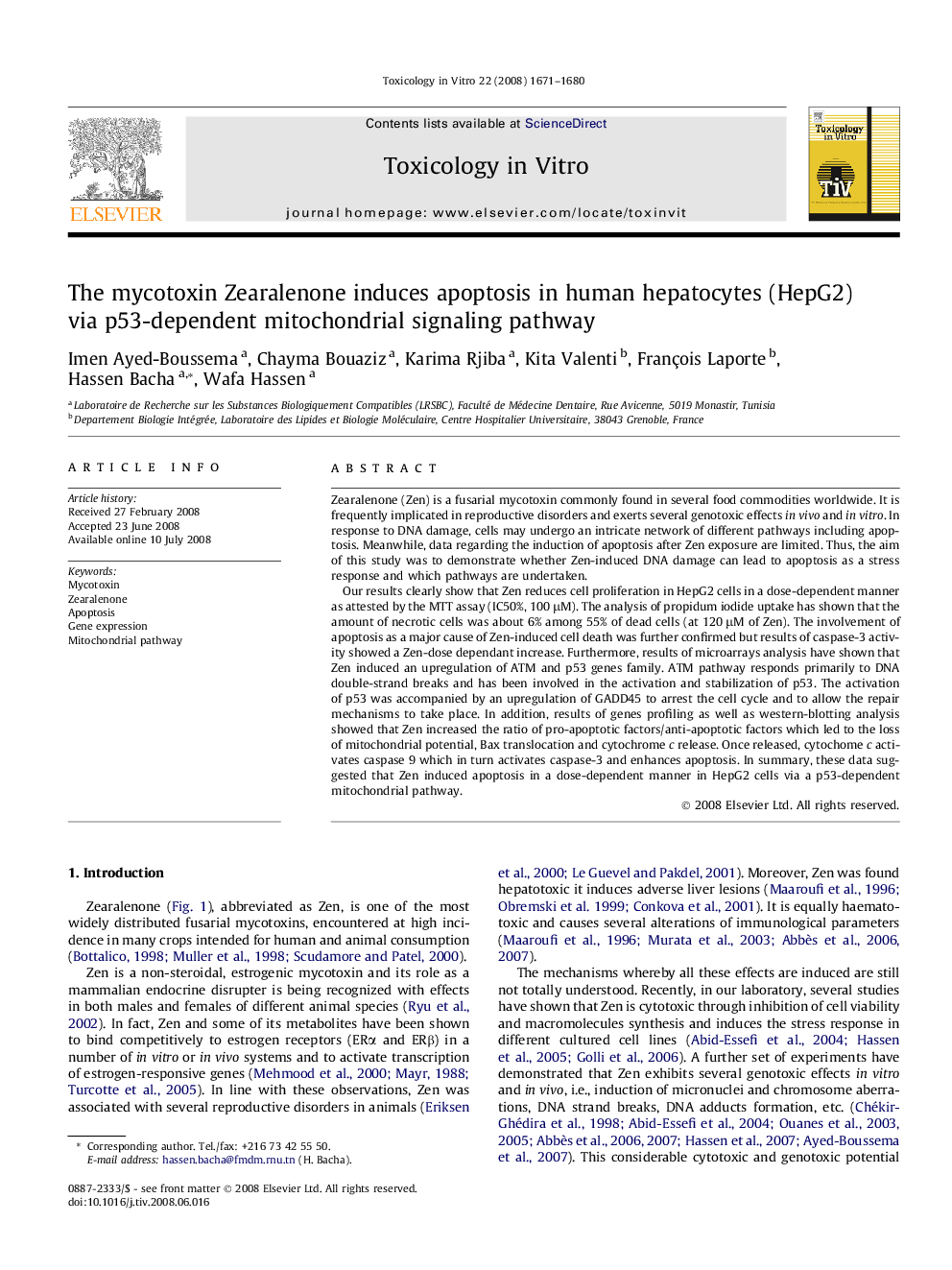| Article ID | Journal | Published Year | Pages | File Type |
|---|---|---|---|---|
| 2603738 | Toxicology in Vitro | 2008 | 10 Pages |
Zearalenone (Zen) is a fusarial mycotoxin commonly found in several food commodities worldwide. It is frequently implicated in reproductive disorders and exerts several genotoxic effects in vivo and in vitro. In response to DNA damage, cells may undergo an intricate network of different pathways including apoptosis. Meanwhile, data regarding the induction of apoptosis after Zen exposure are limited. Thus, the aim of this study was to demonstrate whether Zen-induced DNA damage can lead to apoptosis as a stress response and which pathways are undertaken.Our results clearly show that Zen reduces cell proliferation in HepG2 cells in a dose-dependent manner as attested by the MTT assay (IC50%, 100 μM). The analysis of propidum iodide uptake has shown that the amount of necrotic cells was about 6% among 55% of dead cells (at 120 μM of Zen). The involvement of apoptosis as a major cause of Zen-induced cell death was further confirmed but results of caspase-3 activity showed a Zen-dose dependant increase. Furthermore, results of microarrays analysis have shown that Zen induced an upregulation of ATM and p53 genes family. ATM pathway responds primarily to DNA double-strand breaks and has been involved in the activation and stabilization of p53. The activation of p53 was accompanied by an upregulation of GADD45 to arrest the cell cycle and to allow the repair mechanisms to take place. In addition, results of genes profiling as well as western-blotting analysis showed that Zen increased the ratio of pro-apoptotic factors/anti-apoptotic factors which led to the loss of mitochondrial potential, Bax translocation and cytochrome c release. Once released, cytochome c activates caspase 9 which in turn activates caspase-3 and enhances apoptosis. In summary, these data suggested that Zen induced apoptosis in a dose-dependent manner in HepG2 cells via a p53-dependent mitochondrial pathway.
